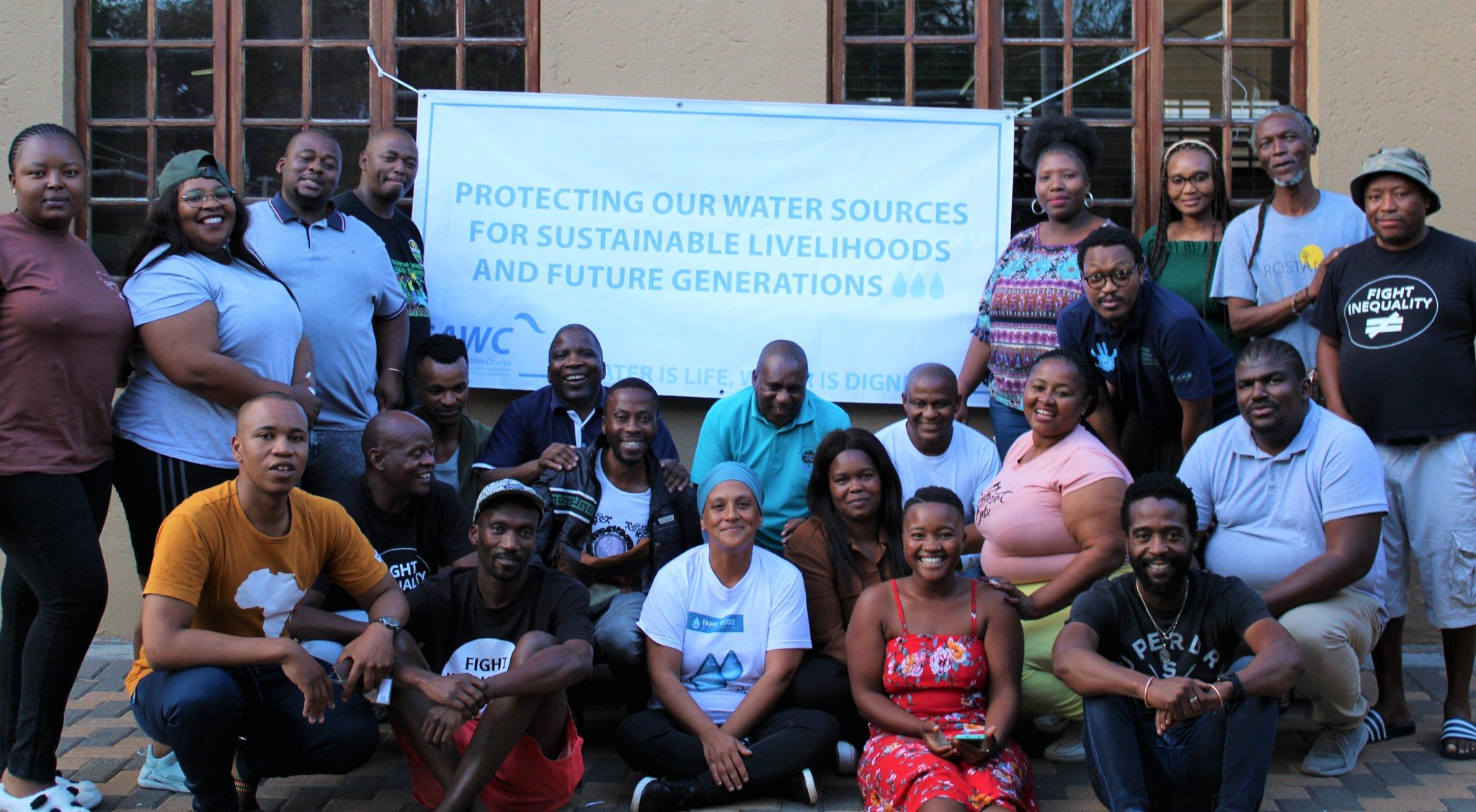by Apiwe Mdunyelwa - SAWC coordinator
Transparency and accountability are necessary values for social movement building, especially in the expansive network of various community organizations and stakeholders that SAWC consists of. SAWC uses democratic practices and decision-making processes which govern and protect member’s representation and respective interests.
SAWC has active members from eight provinces, with each province being represented by two elected coordinating members, from either a community organization or NGO. The highest decision-making platform of SAWC is the Bi-annual general meeting (BGM) where all coordinating committee members meet and discuss on arising SAWC matters for the upcoming two years. The BGM also functions as a performance review of the network’s resolutions, a space for strategic campaign planning, and as an electorate for the National Coordinator and administrative team.
On October 26, we arrived in Polokwane, Limpopo, with groups of comrades coming from eight of nine South African provinces. On the following morning, we opened the Biannual General Meeting (BGM) at 9 am, with comrade and National Coordinator Sandile Nombeni from Gauteng Water Caucus (GPWC) guiding us through the agenda for the next few days.
The room consisted of delegates elected by their provincial water caucuses, funders from 350.org Africa and South African Climate Action Network (SACAN), and SAWC administrative representatives from Environmental Monitoring Group (EMG) and Vaal Environmental Justice Alliance (VEJA). The room also was relatively gender-balanced, with 60% men and 40% women.
To ensure a diverse set of stakeholder engagement, SAWC arranged a meeting with Dr. Gabriel Lekalakala from the Department of Water and Sanitation (DWS).
In 2017, SAWC resolved to restructure itself and reconstitute who was holding space at the national level. Both academics and activists agreed that SAWC should represent more community-based organizations, and be constituted by community members with lived experience of water stress.
Today, in 2022, SAWC has successfully transformed into a movement led by community activists, whose interconnected networks of resources transcend provinces and decades of environmental knowledge, production empowers members. An important transition from 2017 has been through capacity building of SAWC members, which has enabled SAWC to be an independent movement.
One of the issues discussed in Limpopo-Polokwane was the issue of sustainable funding for SAWC, to be able to do its work in all provinces without being reliant on member organisations for sustainability. Funding for provincial activities was one of the main emphases of our time in Polokwane. Therefore, it has been essential to capacitating the provinces to be able to find funding opportunities in their networks and regions. Faeza, Coordinating Committee member from the Western Cape, commented on the many forms of resources provinces can find and use that are not strictly financial funds. For example, provinces can use churches, other NGOs, public spaces, etc., as resources for spaces to hold workshops. It became clear that the network structure of SAWC has been constructive for passing resources through the network, as provinces are facing similar issues and challenges. Knowledge sharing remains essential to the efficiency of SAWC.
In order to have a fully-informed conversation on the role of Secretariat, comrade Samson explained the history of the role, and how it shifted to EMG in 2017 in Coffee Bay due to financial constraints. Samson reminds us that there was never official documentation of what the Secretariat’s role was but the responsibilities were taken on without specific guidelines. In 2020, the Secretariat shifted to VEJA, but due to recent financial issues since 2020 (War in Ukraine and COVID-19), EMG has played a joint Secretariat role in supporting VEJA and SAWC activities.
Therefore, this vote on Secretariat in 2022 was ultimately to officially confirm this joint role between EMG + VEJA, and to see how this coordination should be formalized, and responsibilities should be outlined. VEJA agreed to remain in the Secretariat role until SAWC is able to stand on its own two feet, and be independent from an organization.
To conclude our BGM, collective agreed that EMG and VEJA resolve to be Joint Secretariat for the following 28 months, until February 2025 (SAWC Constitution §7.2). The CC committee from all eight provinces was nominated and approved for the following 28 months with the support from secretariat organisations.







